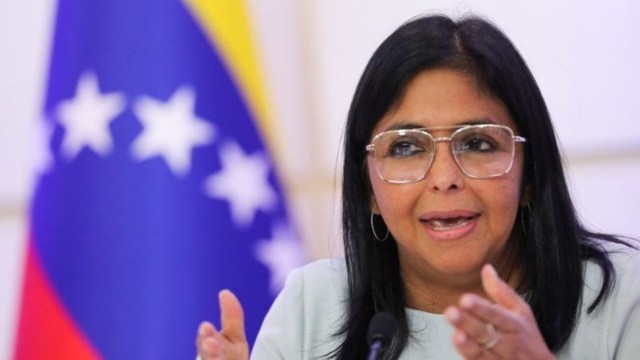
Humiliation and submission, the government asks for nothing less from those who want to partake in a fantasy where they can carry on with business without being bothered. Watch out, it may be a scam.
By Caracas Chronicles – Raul Stolk
Jul 26, 2021
“What do you need?” Seven years ago, after Maduro became president, this question was asked to companies across key sectors of the Venezuelan economy. More precisely: What is it that you need to produce? The answers ranged from lifting exchange and price controls to stopping fiscal harassment, to getting tax and regulatory authorities off their backs, making good on their debts and allowing them to protect their capital. Every single industry was covered in these talks. Important problems were considered, and the ailments of the economy were mapped.
Back then, it was Rafael Ramírez, Nelson Merentes and also Aristóbulo Istúriz making promises to liquor producers, oil executives, electric sector engineers, the pharmaceutical industry, food producers and distributors, the diplomatic corps, you name it.
Chávez had died and Maduro had run, as chavismo would do, under a campaign financed with state resources. For many reasons I won’t dive into (sparing you the pain), the election results were being contested. But as people began to realize that Maduro was it, and that there was no escaping that fact, the fantasy of the end of chavismo started to dissipate and a now familiar forced hope replaced it: the idea that the country’s situation was so bad, so terrible, that the best option for the country was to take a “pragmatic” approach, part ways with some of Chávez’s policies, and embrace the free market. And, why not, bring the country together. I remember holding on to a story I heard while in the finance law specialization, from a National Assembly advisor in 2005: Nicolás Maduro and Calixto Ortega would be the guys who drew bridges with the opposition, “con quien uno se podía tomar un whisky.” The word was that Maduro was a pragmatist and an affable negotiator. But nothing was farther from the truth, Maduro was a hard left-wing ideologue trained in Cuba.
As Diosdado Cabello famously reminded everyone: Chávez was the one keeping the crazies at bay. Back then, we saw Venezuela as a parcelled feudal land, where Chávez’s cronies held criollo shogunates, both territorial in land and business (it’s worse now). There was truth in what Diosdado said, for a change.
We were close to having some of the exchange control regulations lifted, some believed. But everything fell apart. And while it seemed as if these sort of measures would be stepping on some chivo’s business, the truth is Maduro had been culling the chavista moderates since the moment he arrived. Rafael Ramírez, the infamous architect of Chávez’s PDVSA restructuring, was leading the effort. Shortly after, it was clear he had fallen from grace.
There was never a threat in the first place that would make them sit to move forward with a strategy that would unify Venezuelans, and ultimately weaken them. It was all part of a dance that we should know well by now, a way of buying time for whatever reason and controlling the story.
Call Her Daddy
Right now, we find ourselves in a similar place as in 2013. With perhaps a couple of differences: although those talks were much more organized and serious than Maduro’s current approach and promise to potential private investors and his Anti-Blockade Law, this time they seem to be further down the line with loosening their grip on the economy – even if it’s mostly to favor their local and foreign partners. Also, in 2019, shortly after Tareck El Aissami took over the helm of the economy, the State disappeared for a few months allowing the “savage” free market to take hold for a bit. Perhaps that was an experiment, perhaps the U.S. sanctions overwhelmed them (surely the answer must be in chavismo’s black box), but the effect of allowing the dollar to flow freely and forgetting about price controls, even with an economy in shambles, was quickly felt. This has encouraged bullish talk about Venezuela, and a new attempt to approach the government by FEDECÁMARAS, the largest federation of business chambers in the country and one of the most despised foes of the chavista regime. Let’s always remember that when Chávez was briefly deposed in a coup in 2002, its then-president, Pedro Carmona, was sworn in as president.
But even with some signals that things may be different this time, Delcy Rodríguez’s visit to the FEDECÁMARAS annual meeting was a reminder of the kind of hardball the government plays. Cynical, with a half-smirk, and addressing people from the audience by their first names, she made clear that any talk of economic normalization with the Maduro regime can only take place under its terms. In other words, asking an audience of Venezuelan businessmen and foreign diplomats: “Who’s your daddy?”
…
Read More: Caracas Chronicles – The fantasy of a functional autocracy
…

